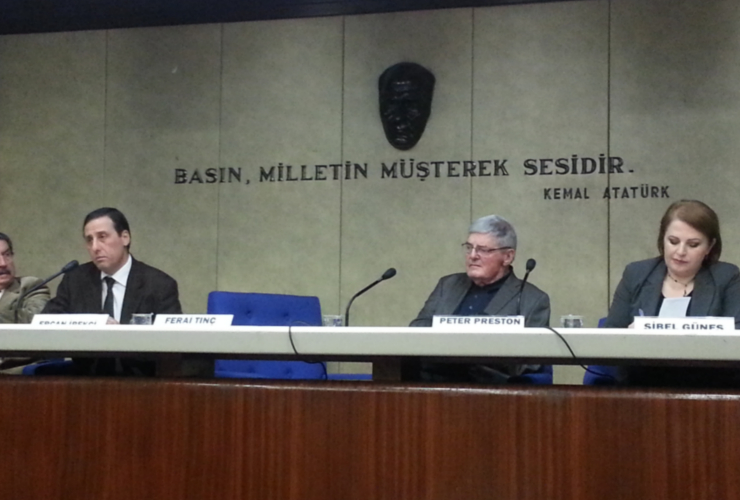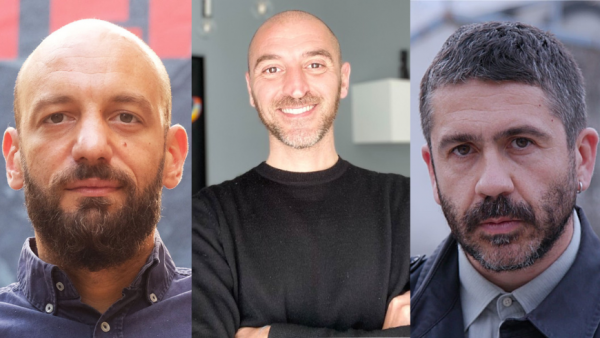Editor’s Note: Former Guardian Editor-in-Chief Peter Preston, who served as IPI Chair from 1995 to 1997 and who spent nearly 10 years on IPI’s Executive Board, died on Sunday, Jan. 6, 2018. He is remembered as one of the leading British journalists of his generation and as a tireless campaigner for press freedom. In 2012, Preston attended a high-level mission to Turkey together with other leading media figures from around the globe. In 2017, amid a wide-ranging crackdown by Turkish authorities on the press, which has seen the jailing of over 150 journalists, including prominent IPI members, Preston wrote the following reflection on the current state of media freedom in the country. It is being published here in English for the first time on the occasion of Preston’s death.
I have been coming to Turkey for four decades now: as a lecturer, conference attendee, human rights campaigner, journalist – and as a simple tourist fascinated by Turkish history and the Turkish people. In short, I feel I know Turkey well; and, in so many ways, I revere it. Great traditions mixed with great problems and great solutions.
Of course people talking about Turkey from the outside often forget the threats that geography brings. But just look at the map and the eight countries that border it: Greece, Bulgaria, Georgia, Armenia, an Azerbaijani enclave, Iran, Iraq and Syria. With Russia and the Crimea lying just across the Black Sea. A catalogue of wars past, tension present and perils future. It seems absurd to find President Trump – or, at a much lower level, Britain’s foreign secretary, Boris Johnson – lecturing Turkish governments on how they should behave in circumstances that would reduce Washington or London to continual nervous breakdown.
Turkey faces a unique number of challenges at every turn. From the decline and fall of the Soviet Union to the rise of ISIS, Turkey is umbilically involved. There is no escape.
And there, for me, lies both the fascination and the challenge. The Bosphorus is one of the great sights of the world, and one of its greatest symbols: a shimmering strip of water linking Europe and Asia. That link matters today as much as it ever has – perhaps more so, when you see the turbulence of Syria and Iraq. There is a choice here between stable government and collapse into civil warfare, a choice between religious compromise and zealotry.
There is also a choice between democracy and the kind of dictatorships that have brought such conflict to Damascus and Baghdad.
Nobody should suppose that maintaining democratic freedoms in such a cauldron is easy. Of course it’s difficult. But equally the challenge of that difficulty makes its own case for determined action.
Freedom of the press is only one factor in a functioning democracy: but, without it, there can be no proper freedom. It is the release valve of government, the guarantee that the public, the voters, will always be kept informed. And when there is no information, there can be no trust, and no understanding of different elements of society.
Which is why, even after the experience of another (failed) coup, journalists from inside and outside Turkey should continue to lobby and argue vehemently against the swathe of arrest and imprisonments that have brought too much darkness to the country’s press and broadcasting stations. Those who seek to shut down independent journalism often argue that it is responsible for a dangerous fracturing in society. On the contrary, such journalism is the underpinning of a democracy which increases society’s resilience. It is a vital element in binding wounds, encouraging self-awareness – and summoning the resolve to overcome threats both internal and external.
It can often seem that freedom of information, and freedom for the bringers of information, causes trouble and threat that those who seek to rule a great and complex country can do without. But that isn’t so. Freedom of information is one strand of democracy that separates Turkey from the governance of too many countries around its borders. Free journalism isn’t an enemy. It is the bedrock of a functioning, reacting, listening democracy.



